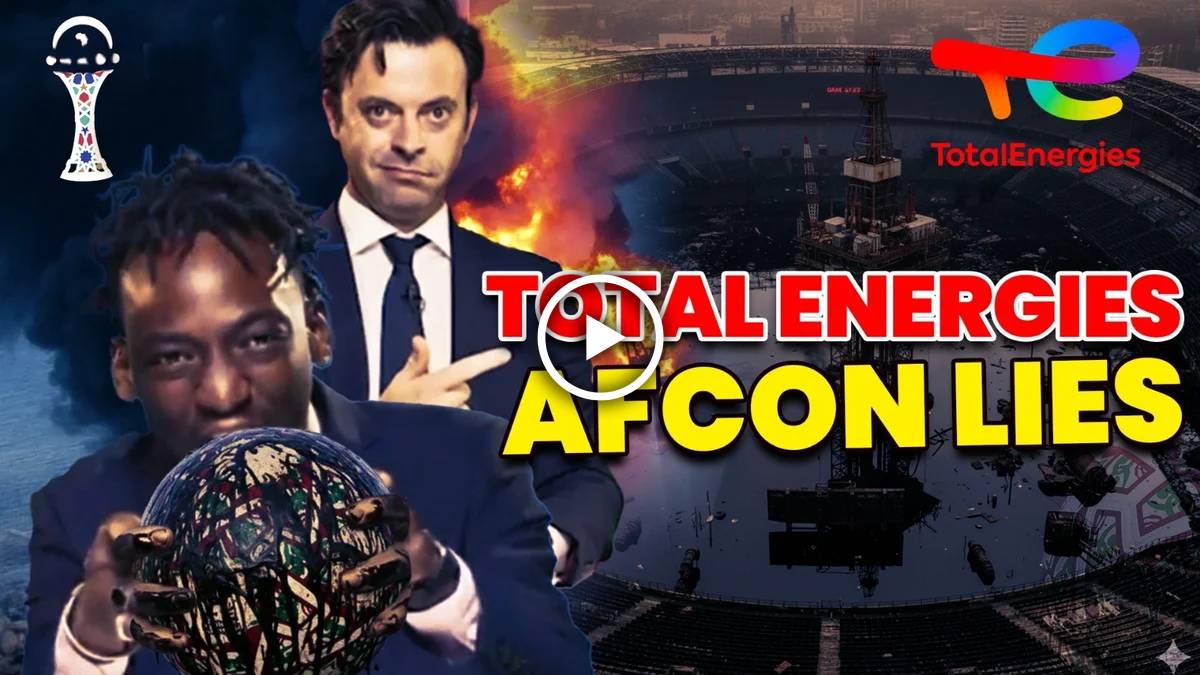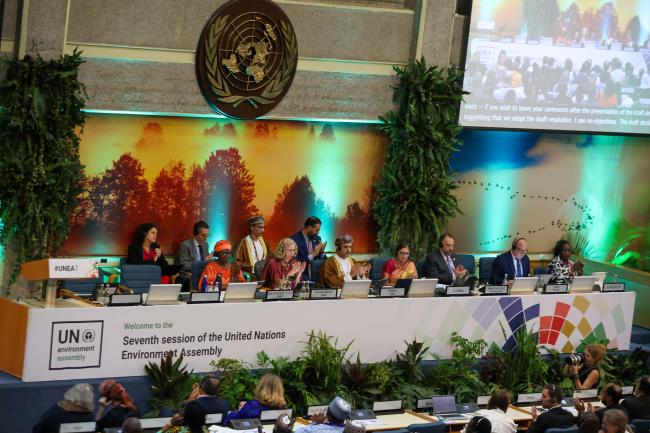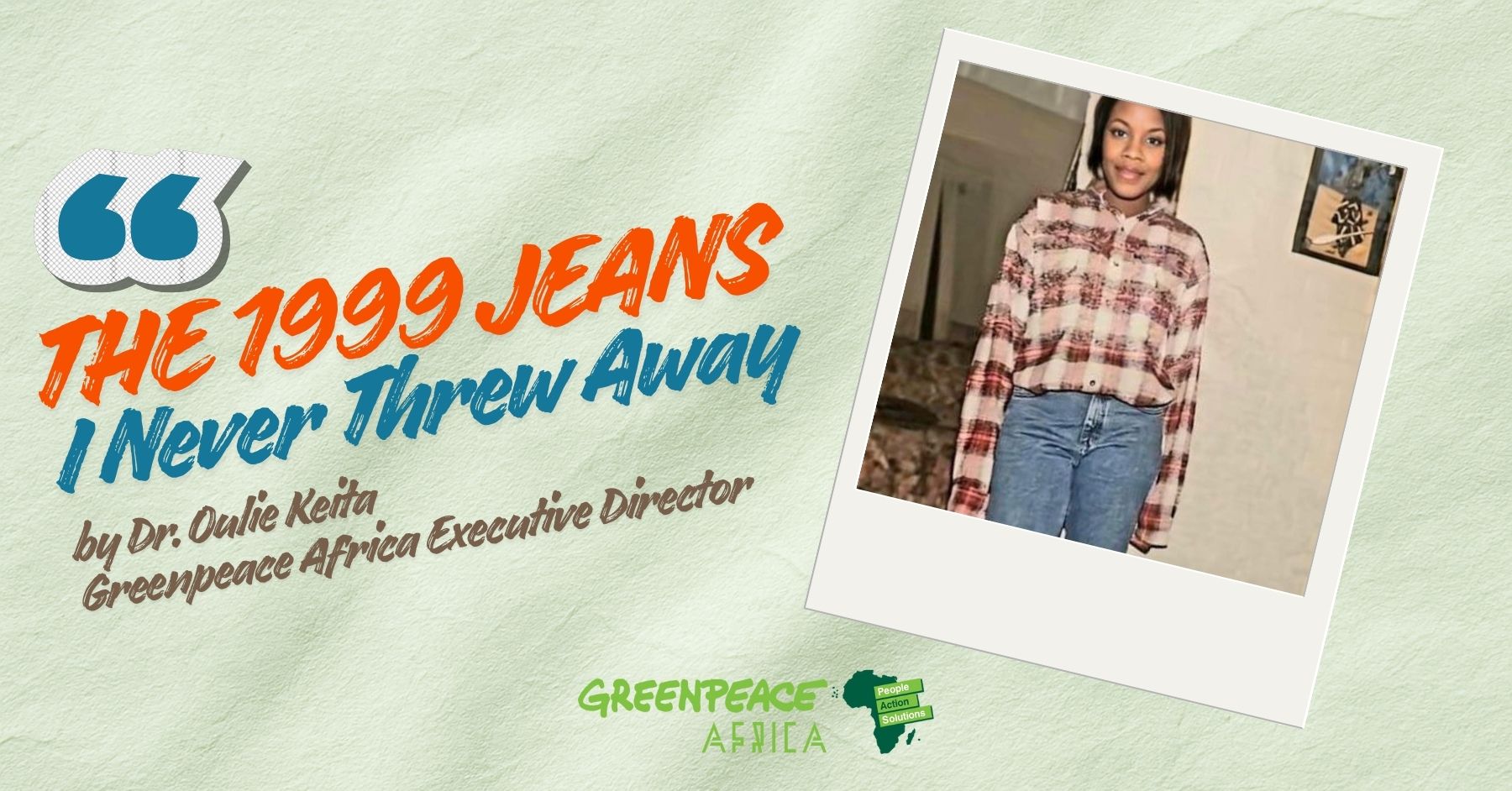
Dr. Oulie Keita
Greenpeace Africa Executive Director
I watched Donald Trump’s speech at the United Nations General Assembly with the same mix of disbelief and weary recognition that many across the Global South felt. Disbelief- because the president of the world’s second-largest historic polluter stood on the UN’s stage and called climate change “the greatest con job ever perpetrated on the world.” Recognition- because, sadly, this is not new. We have long seen powerful people dismiss our lived realities as “scams” while our communities drown, burn, and starve.
Climate denial as political strategy, not a mistake
When Trump called climate change a con job, it was framed as theater. Yet to me, sitting in Africa where families are rebuilding from floods and farmers are counting the cost of failed rains, it was something more calculated.
Trump’s aim was not to persuade scientists; it was to hardwire the idea that climate action equals economic suicide and fossil fuels equal sovereignty. That message – however false – exploits real anxieties about jobs and identity in many parts of the world. It weaponises energy policy, turning it into a tool of nationalism, delegitimising decades of climate diplomacy, and normalising oil, gas, and coal as instruments of power. By framing renewables as weakness and celebrating “traditional energy,” he sought to recast climate cooperation as betrayal and pollution as patriotism.
A record that matches the rhetoric
Words matter but policy hurts. For years, Trump has paired denial with systematic dismantling of climate and environmental protections:
- Mass rollbacks of safeguards: In his first term, his administration weakened or erased more than 125 rules on air, water, land and wildlife, an unprecedented assault on public interest protections.
- Deregulatory blitz redux: Back in office, his EPA launched what it called the “biggest deregulatory action in U.S. history,” moving to unravel guardrails that protect communities and accelerate a just transition.
- Turning back the clock on super-pollutants: The administration moved to delay and dilute the phase-down of HFCs—chemicals thousands of times more potent than CO₂, despite industry and environmental groups warning this undermines climate progress and market certainty.
- Choking off clean-energy momentum: Orders to freeze or claw back clean-energy and climate investments from recent U.S. laws undercut jobs, consumers and communities—while signaling that fossil interests come first.
- Abandoning global responsibility—again: The United States’ second withdrawal from the Paris Agreement under Trump told the world, especially the most vulnerable, that their survival is optional.
Taken together, these actions are not “policy differences.” They are a project to lock in fossil dependence, shift the costs to the poor, and suffocate multilateral solutions. The consequences are measured not in abstract numbers but in flooded farms, dead livestock, heat-stricken workers, and displaced families—from the Sahel to the Pacific.
Contempt for the Global South
At the UN, Trump fused migration, energy, and national decline into a single fear-narrative: guard the borders, drill more, and distrust cooperation. This script erases the humanity of climate-displaced people, undermines the development rights of African nations, and sneers at the very forum where smaller countries can still stand, speak and shape outcomes. It’s no accident that world leaders and observers warned that his address mocked UN values and undercut global leadership; the disdain is a feature, not a flaw.
The story we must insist on
Trump’s story says sovereignty rests on oil rigs and border walls. Ours says it rests on justice and solidarity. Climate action is not weakness – it is survival and opportunity. Migration is not invasion – it is adaptation with dignity. Fossil fuels do not bring independence – they create dependency on volatile prices, polluted air, and stranded assets. The UN, for all its flaws, remains one of the few places where vulnerable nations can demand accountability.
This is why African leaders used the same stage to argue for climate justice, debt relief, and investment in renewables and resilience. The true fault line at UNGA 2025 was between two futures: one of denial and division, and one of cooperation and justice. The choice is existential.
From words to power
As Greenpeace Africa, we will not normalize denial or equivocate about harm. We will:
- Expose lies and name harms with evidence grounded by science and frontline testimony.
- Stand with movements fighting for clean air, safe water, and workers’ rights across Africa.
- Press governments and financiers to accelerate a just energy transition, rooted in access, affordability, and decent work.
- Defend multilateralism that delivers climate finance, technology transfer, and loss-and-damage support.
Because behind the applause lies a plan to sacrifice the many for the profit of a few. We refuse it.



